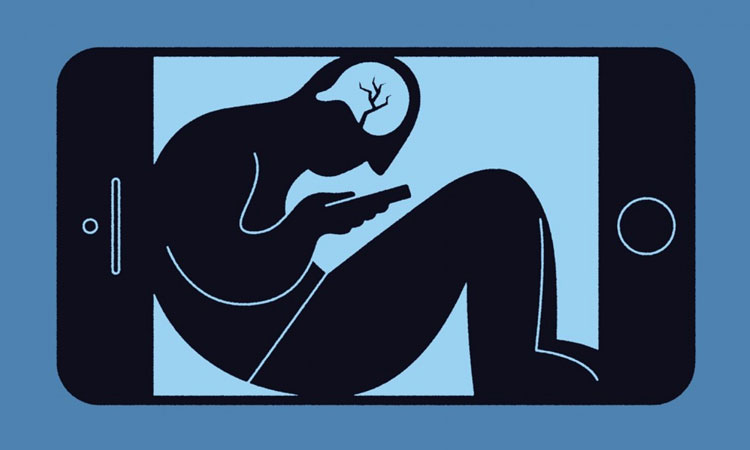
Dealing With Teenage Phone Addiction
While phones are incredibly useful tools, they can also be addictive. It is estimated that teens are tethered to their smartphones for seven hours on average, each day. Teenage cell phone addiction goes well beyond texting and talking. It includes apps, games, and, in particular, social media. For teens, cell phones have become a way to comment and criticize, approve and admire. Teens check for likes and responses to their own posts and peer pressure can add to the problem. Such behaviors are normal in moderation, however they can become dangerous when excessive. The cell phone, like a drug, becomes a way to escape stress and reality. It alters the perception of the user and builds a barrier between the teen and the real world.
Signs of Cell Phone Addiction:
-
Constantly texting with friends and checking for incoming texts or spending hours chatting or calling.
-
Frequently listening to music and watching videos using headphones or checking email and social media accounts, is mostly alone and sits up late into the night.
-
Playing single-player video games and interactive multiplayer games for hours daily
-
Worrying about cell phone battery life and access to electrical power.
-
Has more virtual friends than real friends and more online activities than actual activities.
The negative consequences include the following:
-
"Text neck"—chronic strain from looking down at a cell phone
-
Eye strain and blurred vision as a result of focusing on a small screen
-
Decreased neural connectivity, leading to poor emotional regulation
-
Poor dietary habits, as junk food is consumed to a greater extent resulting in weight loss or weight gain.
-
Hyper- vigilance about cell phone rings and pings.
-
Vulnerability to predators on line with criminal intent
-
Insomnia and negative shifts in sleeping patterns
-
Increased anxiety and worry connected with the cell phone
-
Physical isolation from friends and family. Such isolation leads to mental health problems, such as depression or anxiety, social alienation.
-
Increased aggression in connection to control of the cell phone.
-
Driving could be the most dangerous manifestation of teen cell phone addiction.
What parents can do? Cell phone addiction is turning more and more teenagers into walking zombies and like it or not, phones are here to stay. It's important for parents to monitor phone activity, call log and data without intruding on teen's privacy. Set a limit on the Internet data available. Your teen should learn to use cell phone less frequently and more thoughtfully.
-
Set a positive example. Use your own cell phone less and pay more attention to the members of your family and have activities with children such as reading, socialising and discussing interesting topics.
-
Set limits and monitor social activity with the help of parental control software for android, tablet or mobile devices.
-
Set rules. No phones at the table – insist that dinner time should be spent with family, when all members share news, talk and laugh, enjoying the time spent together. Similarly for all family trips, time spent hiking, visiting places of interest, travelling, etc.
-
Allow internet usage time only after other responsibilities are completed. Teach your child to prioritize by requiring them to complete chores and homework before using the computer for leisure. Make a checklist of all chores/tasks to be completed each day. Treat phone usage time for entertainment as a privilege, not a right.
-
Make sure that your co-parent or other guardians are all on the same page about the rules, expectations, and consequences of phone usage.
-
Create gadget-free zones around the home. Do not allow the phone/computer to be used in bedrooms or late at night.
-
Block any gaming or social media sites that you know may be potentially harmful.
-
Encourage your teen to enrol for sports and extracurricular activities as a substitute for phone time.
To overcome teen cell phone addiction, show your child that life is far more interesting and colorful than any social media. Time spent with family, friends, books, outings, travel, socialising is more valuable than the virtual world. Be a friend to your teen, be open to discussions, dialogue and negotiations but at the end of the day you are the parent and it's your responsibility to set rules for his/her own safety. -